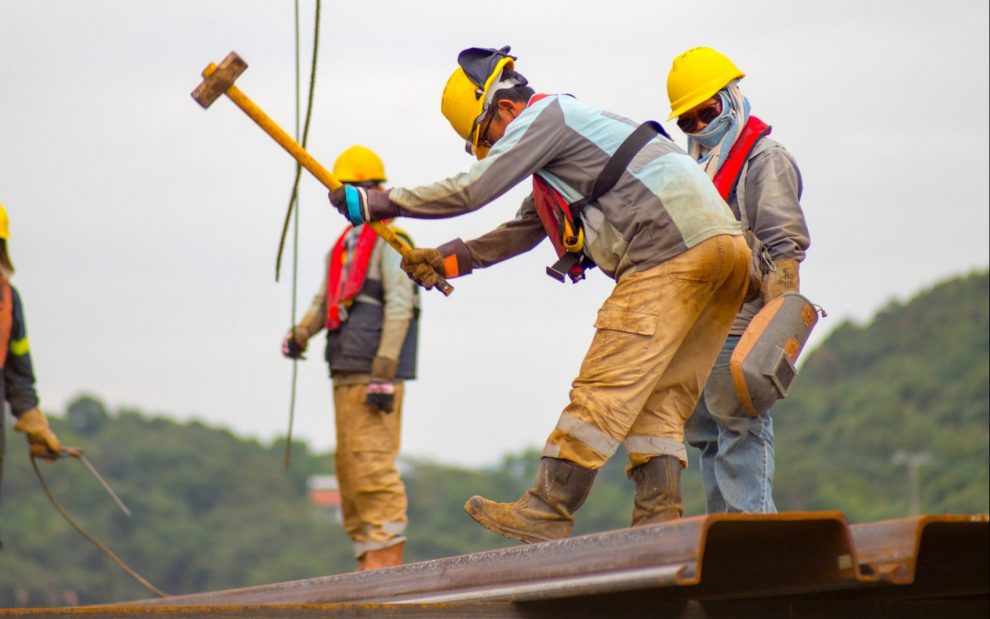The nature of work is changing. Between the impact of the pandemic and technology, we find ourselves at a crossroads regarding the nature of work in society. What is work? What is its proper place within our social and economic vision?
In the 1931 encyclical Quadragesimo Anno (On the Reconstruction of the Social Order), Pope Pius XI urges that we should strive for a more equitable economic system in which there is “ample sufficiency among the workers.” He notes that workers should not “be remiss in work, for man is born to labor as the bird to fly.”
Reflecting on this passage at the Catholic Theological Society of America, David Cloutier argued against viewing work through consumerism, lest we become like the humans in the Pixar movie WALL-E. Good work is important for the human person and the common good. Our goal, he argued, should be a worker’s paradise “where the primary abundance is not more and more things, but more and more genuinely rewarding work for all.”
The analogy to birds captivated my imagination. While labor and work are not quite the same thing, Catholic social teaching often uses them somewhat interchangeably, in part because Catholic theology embraces a vision of human work that includes unwaged human labor. As I walked down a boardwalk, watching the shorebirds in flight, I found myself coming back to the analogy that labor is to the human person as flight is to birds.
Can birds help us embrace a vision of labor that reclaims the dignity of work and of workers? For migratory shorebirds, flight is a key component of their survival. It is how they labor. Their wings are adapted for migration as well as swimming and hunting on ocean shores. But as I watched, seagulls and terns did not simply fly as work—they played. It is mesmerizing to watch a group of terns windsurfing and playing tag. When a storm rolls in, the birds cannot fly at all without extreme danger. Hurricanes are particularly precarious, as birds can be tricked by the eye of the storm, unaware that the danger has not passed. Flight is always in relationship to the wind.
It is in that complex relationship that perhaps we can begin to embrace more fully Catholic social teaching’s broader conception of human labor: a vision of work that seeks to value waged and unwaged labor, celebrates creativity, and incorporates a deep human need for leisure or play.
Forced by the COVID-19 pandemic, the American popular imagination seemed poised to rethink how we economically and socially structure society. We are considering “the wind.” Grocery store clerks and farmworkers are beginning to be recognized as the essential workers they always have been. The need to invest in care infrastructure is finally a national conversation. The pandemic exposed existing inequalities and structural barriers. It created momentum for redistributive policies, like the expanded child benefit, to help struggling families.
Birds may be born to fly, but flying is not just one thing.
Advertisement
We are in the eye of the storm. Yet deep within the American social imagination is a suspicion of workers and the poor, which threatens our ability to build a more equitable and inclusive society.
Recently, a TV commentator expressed horror that Burger King was offering signing bonuses to attract workers. Why is it acceptable for law or financial firms to offer signing bonuses but not Burger King? As he Zoomed in from his home, he urged business owners to revoke work-from-home policies because the pandemic has made the American worker “soft.” The underlying assumption is that good working conditions or strong social support for families is a threat to our economy.
Upholding the dignity of work demands just wages and working conditions. But it also calls for us to value, as a society, unpaid work—child care, community projects, creative and civic engagement. Birds may be born to fly, but flying is not just one thing. So too our vision of work needs to expand so that it is valued in all its human complexity. Promoting redistributive policies like basic income, says theologian Kate Ward, can “enable more workers to shift the balance: less waged work for survival, more time to be about the work before us.”
A mother who works remotely to balance the needs of child care deserves to have the fullness of her social and economic contribution recognized. A son who requests flexible hours to care for his father the same. Empowered workers demanding not just to survive but to flourish as fully human persons is perhaps our best chance to build a more just, inclusive, and resilient society. And it is for this reason that, in the 1981 encyclical Laborem Exercens (On Human Work), St. Pope John Paul II calls work the “key to the social question.”
This article also appears in the October 2021 issue of U.S. Catholic (Vol. 86, No. 10, pages 40-41). Click here to subscribe to the magazine.
Image: Unsplash/Arron Choi














Add comment